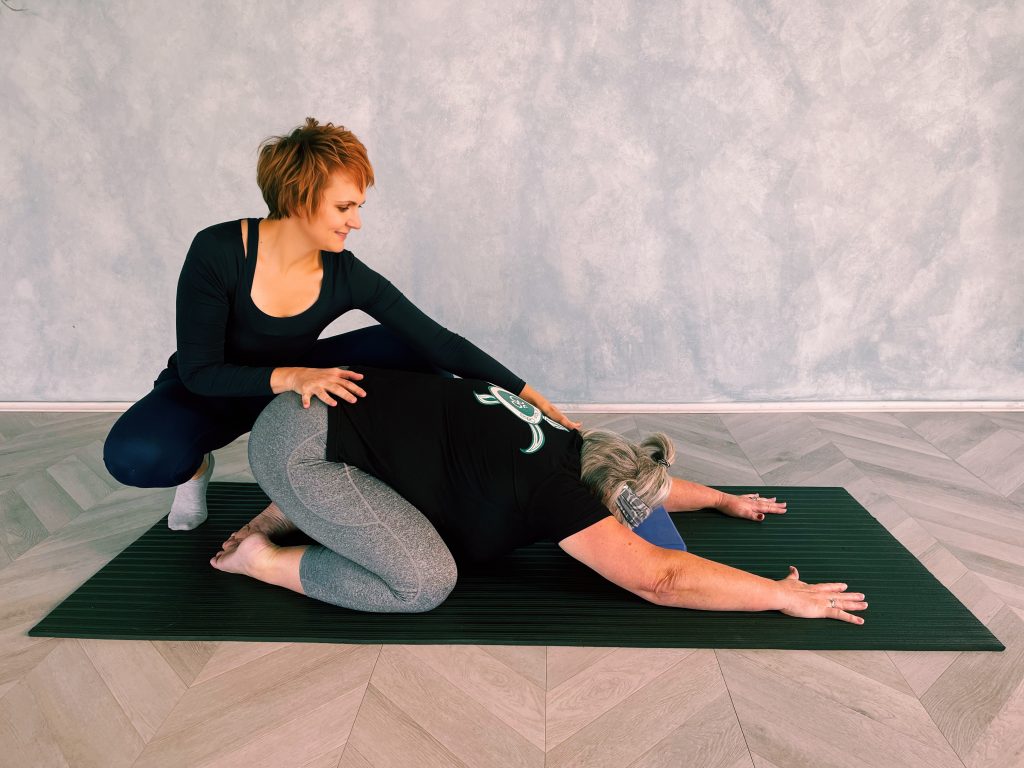The Question of ‘Yoga Therapy’: What is it, and why is this age-old art of living, healing, and self-regulation very relevant in the modern world?

When we talk about Yoga therapy, a common question often arises: “Isn’t all yoga therapeutic?”
In an ideal world, yes. However, in today’s yoga landscape, yoga has morphed into a lucrative commodity that often employs a one-size-fits-all approach, which sadly – in many instances – can steer students and novices away from yoga’s most profound potential: to transcend the physical, and become masters of our own minds.
It’s disheartening to see the increasing number of injuries happening in yoga classes today, mostly because we have become less interested in yoga’s foundational ethics and purifying practices, and more interested in creating the perfect pose for our Insta posts. In short, Hatha yoga, the physical aspect of yoga, incorporates postures and practices that are simply not suitable for everyone, and in some cases, can even exacerbate existing conditions.
Rediscovering Yoga’s Authentic Roots
Yoga, in its essence, has ancient origins as a deeply personalized path aimed at transcending worldly suffering. Rooted in a rich tapestry of techniques, ethical principles, and practices, yoga extends far beyond the physical practice of postures alone.
In the heyday of influential yoga, visionaries like Swami Vivekananda, Paramahansa Yogananda, B.K.S. Iyengar, and Pattabhi Jois introduced yoga to the Western world. They endorsed one-on-one approaches to tailor yoga practices to individual needs.
Modern yoga was always meant to be therapeutic, a path to holistic well-being. However, today, it often prioritises filling classes with generic posture-based forms for marketing ease.
Embracing Therapeutic Yoga
To restore yoga’s therapeutic essence in our modern world, we must return to this holistic and individualised approach that the swamis before our time encouraged. In short, trying to accommodate diverse bodies and conditions in overly large classes can pose significant challenges that can be avoided in smaller group settings, or better yet one-to-one.
In one-to-one Yoga therapy, the methodology involves an in-depth consultation and individual assessment, going beyond addressing surface-level physical symptoms. Yoga therapy seeks the root cause of symptoms, and recognises the dynamic nature of the human constitution. Just as the elements of nature, we, as humans, are in a constant state of flux, continually changing on a cellular level.
While focusing on physical symptoms may provide short-term relief, true healing delves into the deeper layers of the self—the psyche and emotions. In yoga, these layers to the self are known as Koshas.
Koshas: Unveiling the Self
Kosha, derived from Sanskrit, translates to ‘sheath’ or ‘covering.’ In Vedantic philosophy, the Pancamaya Kosha model consists of five sheaths that compose our being. These layers are:
1. Annamaya Kosha – “food” / Physical body
2. Pranamaya Kosha – “energy” Breathing dimension / Energy Body
3. Manomaya Kosha – “mind” Knowledge/intellect / Emotional Body
4. Vijnanamaya Kosha – “discernment” Personality / Wisdom Body
5. Anandamaya Kosha – “bliss” / Bliss Body
This philosophy, originating from ancient India and documented in the Taittiriya Upanishad, is timeless wisdom innate within each of us. The Kosha model is highly relevant in our modern lives, as it reveals that our mental and emotional states inevitably manifest in our physical well-being, and visa versa. It highlights the illusion of all separateness.
The Path to Transformation
So, how do we transcend the physical body into the deeper layers of the self, where genuine transformation and healing occur?
The process of Yoga therapy provides a direct pathway into these deeper realms. Under the guidance of a knowledgeable Yoga therapist, we can unearth the root cause of our symptoms and physical conditions. Through Yoga therapy, we learn to understand the ripple effect that each layer of the self has on the other—forming the foundation of the mind-body connection.
In essence, the role of the Yoga therapist is to guide participants back to the sacred home of their true selves, utilising relevant yogic practices tailored to each individual’s needs.
For more information on Yoga therapy, book a free, no-obligation mini Yoga therapy consultation today here, or reach out for more information here.

